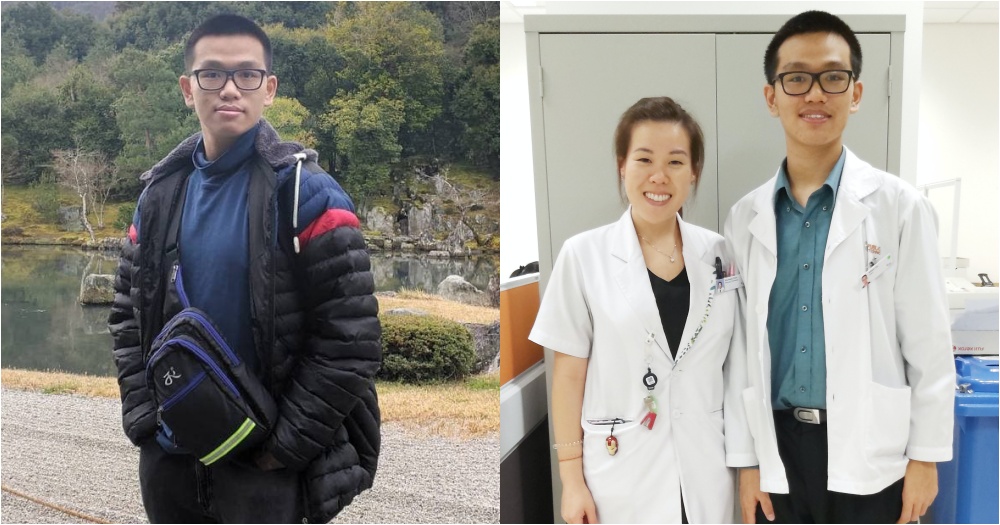William Tay was diagnosed with Central Auditory Processing Disorder (CAPD) when he was 10 years old.
People with CAPD can't process what they hear in the same way other people do.
This is because their ears and brain don't fully coordinate.
CAPD affects about five per cent of school-aged children, including Tay.
Naturally, his ability to learn in school was affected, especially when he was younger.
He told Mothership:
"There were moments that I felt like giving up. As a student with special educational needs (SEN), it was not easy to mingle around with my peers and cope with my studies. Many of my classmates who did not understand my condition would often look down on me and make fun of me for being a slow learner."
Despite the challenges, the 20-year-old Singaporean stood his ground.
He worked twice as hard as his peers and took control of his own life.
"I motivated myself and pushed myself to find new ways to learn and cope with my SEN while telling myself to always do my utmost best. This can come in the form of staying back after classes or school to clarify my doubts in my respective subjects or modules."
His efforts eventually paid off.
After completing his studies in Republic Polytechnic (RP)’s Diploma in Pharmaceutical Science, Tay topped his cohort and graduated with a gold medal.
He was also placed on the Director’s Roll of Honour for three consecutive years.
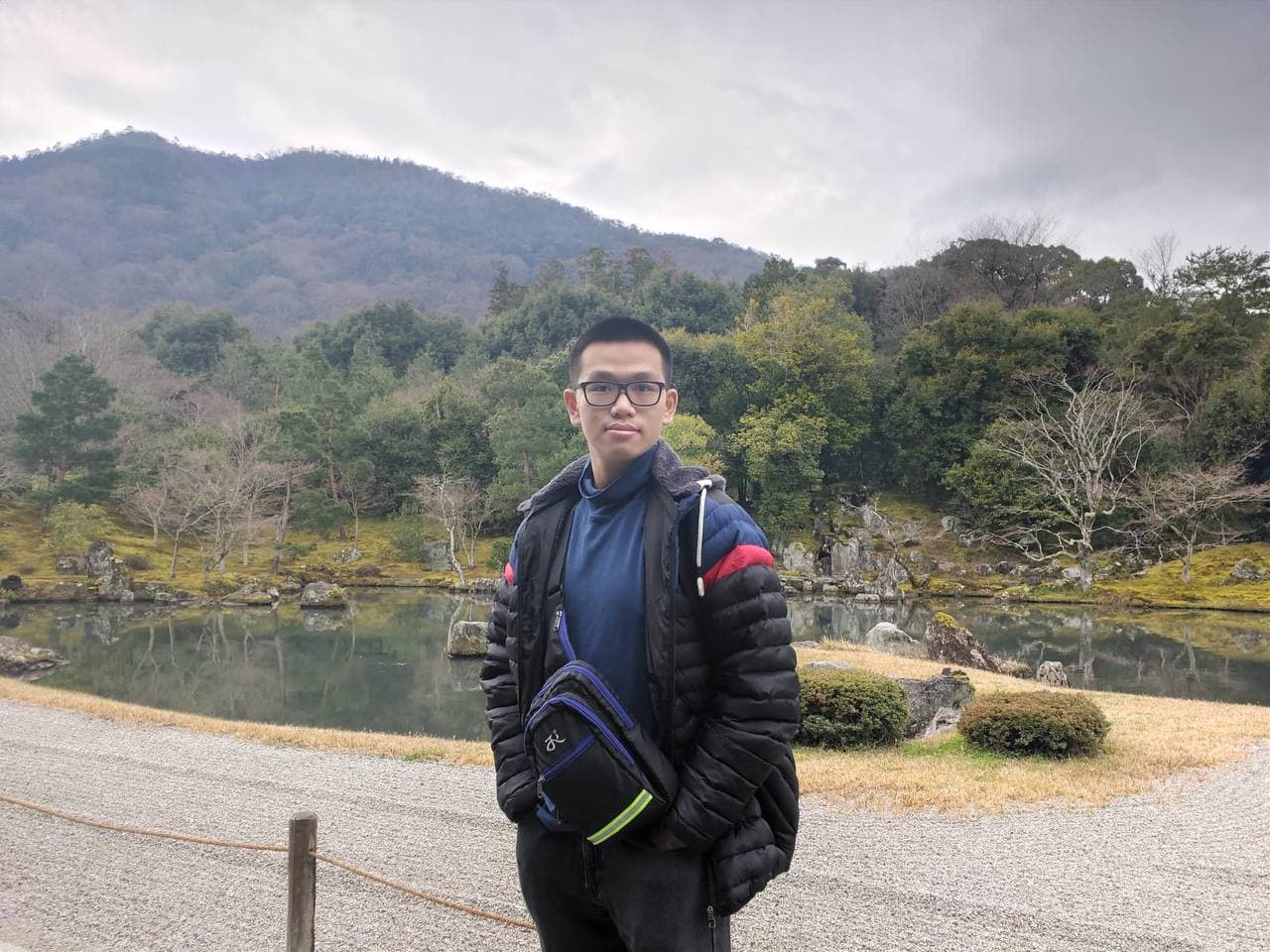 Photo courtesy of William Tay.
Photo courtesy of William Tay.
Credits Republic Polytechnic for his success
Tay refuses to take all the credit.
Instead, he said that his achievements were only possible with the help of RP, or more specifically, his lecturers.
As CAPD was not a condition known to many people, Tay said that it was hard for teachers to understand him at first, especially during his primary and secondary school years.
RP’s lecturers, however, have gone the extra mile for him.
To help him during lessons, they would arrange for Tay to sit in front of the class so he could focus and hear clearly.
They also consistently checked on Tay’s progress.
"Whenever I had difficulties understanding the topic, they would guide me during my lunch break or even after classes. Over my three years in RP, all my lecturers have helped me so much in clarifying my doubts as well as giving me advice on how I can further improve to better understand the topic."
In particular, Tay singled out two lecturers who have helped to build his confidence: Dr Chiradip Chatterjee and Dr Dawn Er.
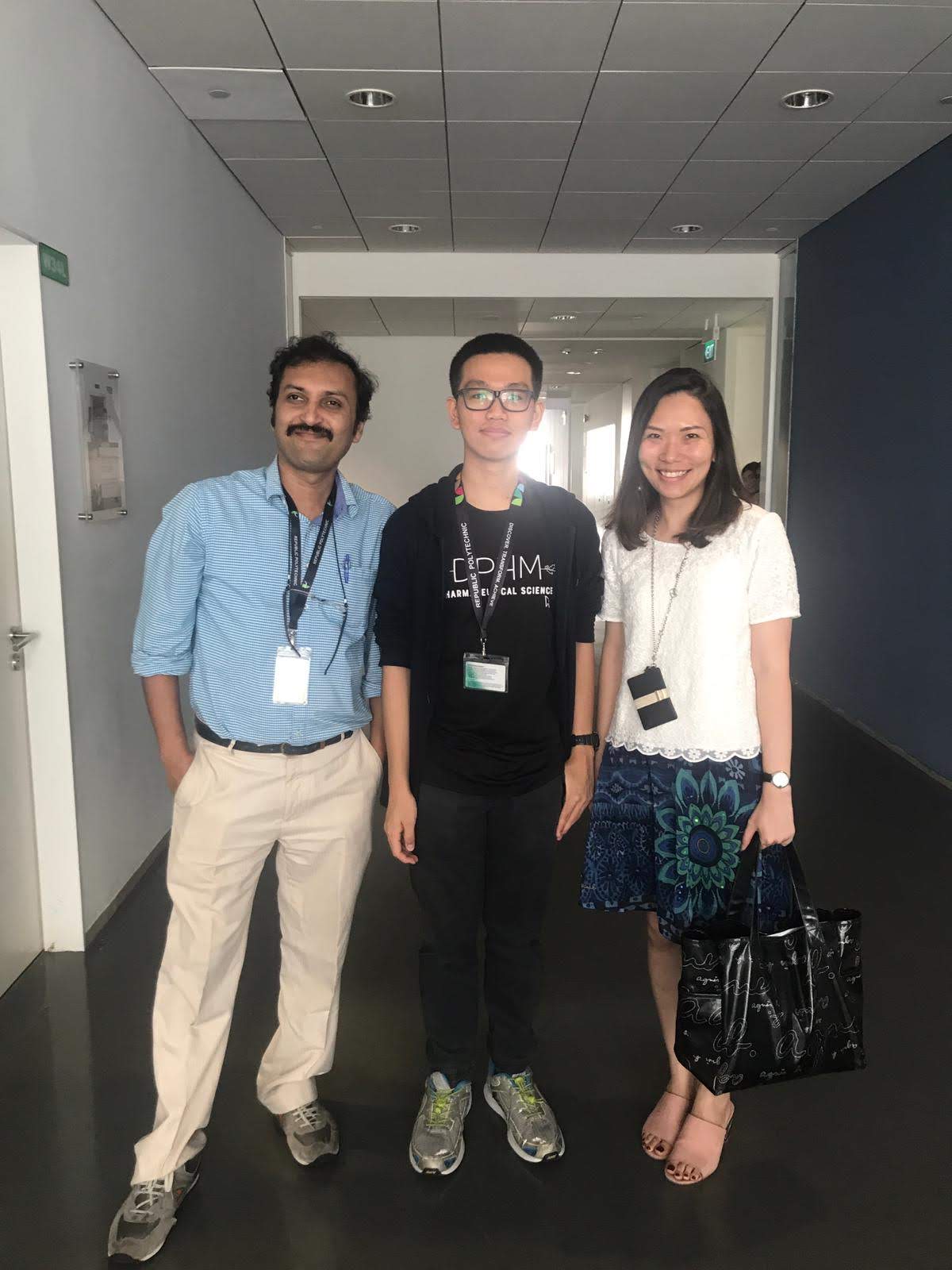 Photo courtesy of William Tay (taken pre Covid-19).
Photo courtesy of William Tay (taken pre Covid-19).
Lending a helping hand to others
Seeing his lecturers’ passion and care inspired Tay to lend a helping hand to others as well.
"Without my lecturers’ support and encouragement, I would not have done well and be able to progress throughout my three years in RP. Hence, I wanted to guide and encourage all my juniors so that they are not left out or fall behind their peers when it comes to their studies, just like how all my lecturers have done so with me."
Tay explained that he wanted to be a good example to his juniors and bond with them.
Besides tutoring them, Tay regularly offered advice on polytechnic life, and life in general.
"In my opinion, a good senior is one who is a good role model in their studies and attitude, and guides their juniors in doing the same," he said.
He added that "nothing is more rewarding" than seeing his juniors gradually improve in their studies.
Internship with Khoo Teck Puat Hospital
The only time Tay was too busy to help his juniors was when he had to go through his 20-week internship.
Tay completed his internship at Khoo Teck Puat Hospital (KTPH), which he described as "the best internship experience" he could ever ask for.
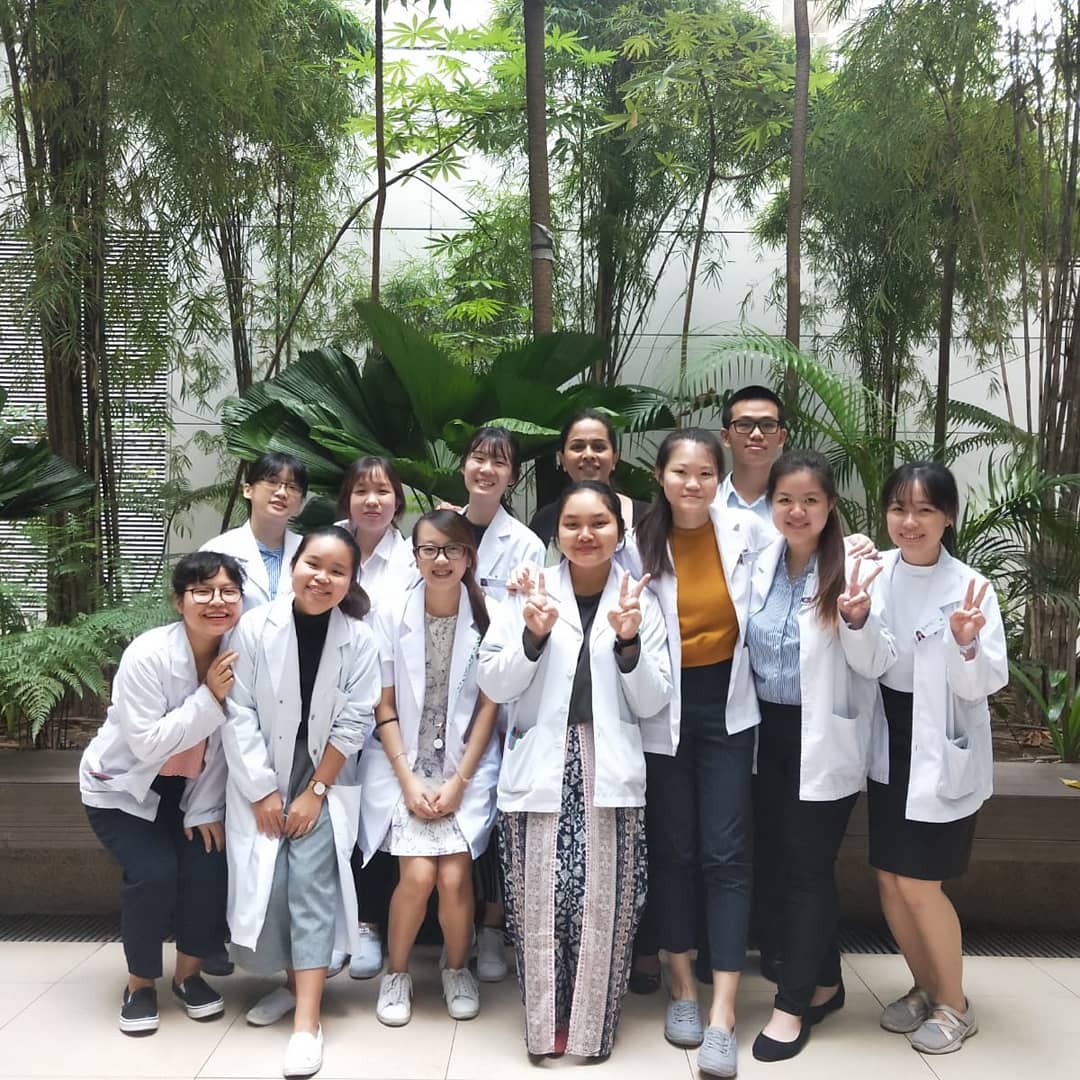 Photo courtesy of William Tay (taken pre Covid-19).
Photo courtesy of William Tay (taken pre Covid-19).
You see, pharmaceutical science has always been a passion of his. That’s why he chose to pursue this course in RP.
He was interested in the healthcare industry and how the medical conditions and treatments worked.
In KTPH, Tay was a pharmacy technician. He was in-charge of picking, packing and dispensing medication to the patients.
This included learning other hospital operations relating to the dispensing and counselling of patients.
"My studies in RP has helped me a lot in my internship. The use of problem-based learning in every module has helped students like me to think beyond what was being taught in the books and materials."
Tay also encountered many elderly patients with mobility issues.
As a person with SEN, Tay empathised greatly with them.
He never failed to offer a helping hand when needed.
One of the patients he served wrote a positive feedback form and told his internship trainer to commend him to the supervisor.
Even though Tay humbly refused, the patient insisted on writing him a compliment.
Tay received good feedback from the hospital, and passed his internship with commendation.
His achievements didn’t stop there though.
For his civic-mindedness, Tay also attained the Harvard Prize Book (Singapore), an award that acknowledges and encourages altruism.
A supportive and caring school
Tay is glad he chose a polytechnic that helped him grow as an individual, as well as a leader.
Ironically, Tay’s former teachers weren’t exactly keen on the idea of him entering RP.
"I was told by my teachers back then in secondary school that RP is not a good polytechnic, but I beg to differ. It is not true at all. RP is a very good polytechnic that offers great support to all students, regardless of their circumstances."
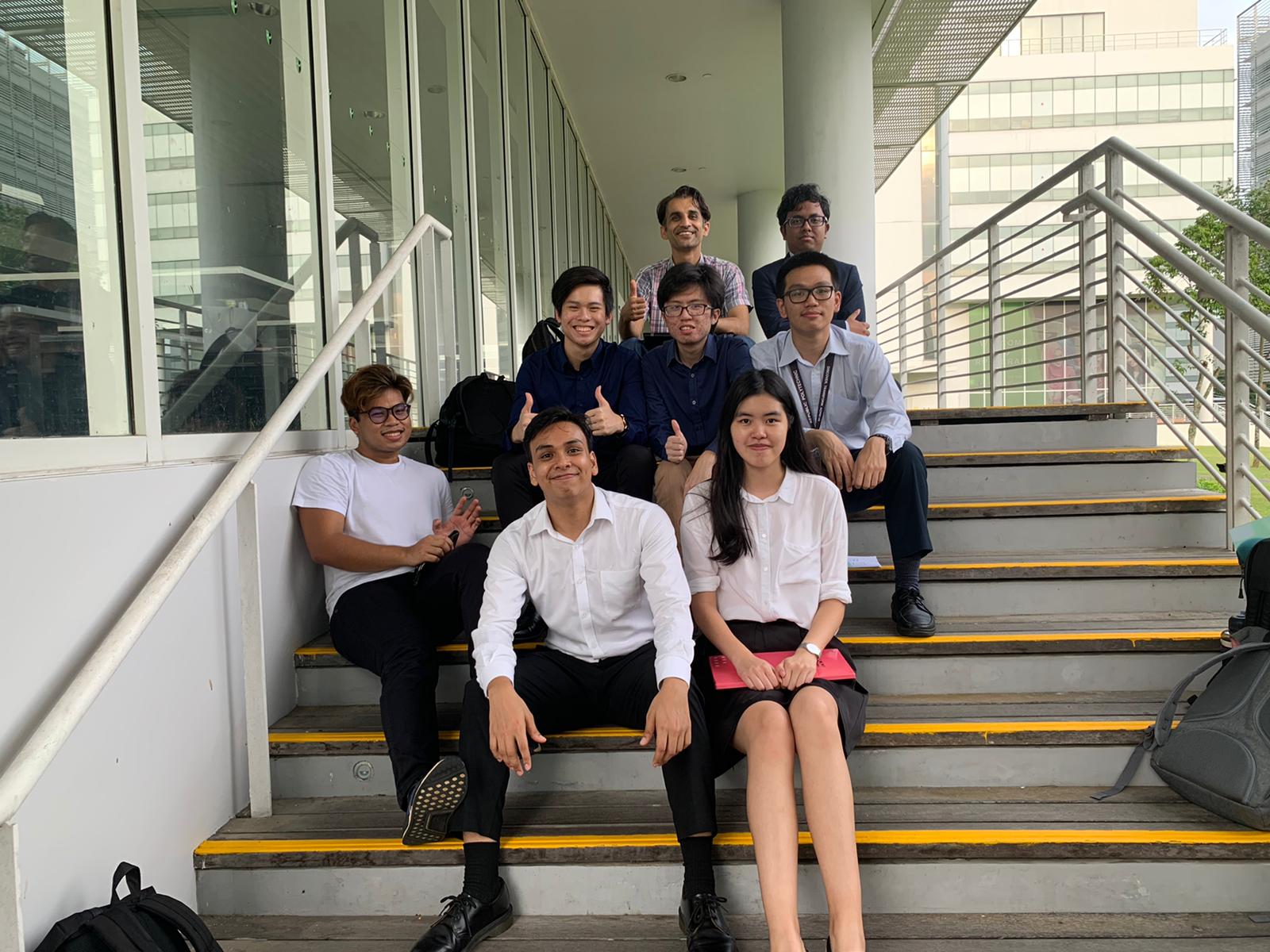 Photo courtesy of William Tay (taken pre Covid-19).
Photo courtesy of William Tay (taken pre Covid-19).
RP’s creative problem-solving pedagogy
Another reason why he chose RP was because of its hands-on programmes.
Like all full-time courses at RP, the Diploma in Pharmaceutical Science is delivered through the problem-solving pedagogy, preparing students to be problem solvers and professionals at the workplace.
Tay said:
"As a student who was used to the conventional way of learning, getting used to problem-based learning was not easy at first as I was not used to thinking out of the box. However, thanks to RP and its teaching approach, I am now able to approach problems with an analytical attitude, which has benefited me in my studies and personal life."
RP is having its virtual open house from Jan. 7 to Jan. 9, where you can find out more about its programmes.
In addition, you can join admissions webinar on Jan. 12 to gain useful information and valuable tips on applying to a polytechnic through the Joint Admissions Exercise (JAE).
For more information, head over to RP’s website.
Top images courtesy of William Tay. Quotes were edited for clarity.
This sponsored article was brought to you by Republic Polytechnic.
If you like what you read, follow us on Facebook, Instagram, Twitter and Telegram to get the latest updates.
